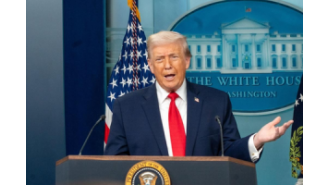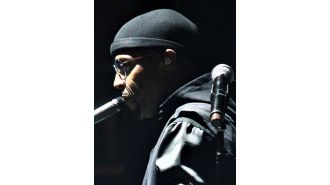Dave, who served as foreign secretary for nine months, steps down from Tory front bench.
David Cameron, former Prime Minister, declined to join the shadow cabinet following the Conservative Party's defeat in the election.

Last November, David Cameron had an unexpected turn of events when he was appointed as the foreign secretary. However, after nine months of serving in this position, he has decided to step down from Rishi Sunak's shadow cabinet. This decision comes after the devastating loss of the Tory party in last week's General Election.
Formally known as Baron Cameron of Chipping Norton, the former prime minister has decided to take a step back from frontbench politics. Instead, he will continue to serve as a peer in the House of Lords. His resignation has prompted Sunak to appoint Andrew Mitchell, the former deputy foreign secretary, to the top shadow post.
It is worth noting that Sunak himself will be stepping down from his post once a new leader is chosen through a leadership contest. In the meantime, he has formed his final "interim" shadow cabinet. This decision comes after a record number of cabinet ministers lost their seats in the last election, leaving Sunak with a limited pool of Conservative MPs to choose from.
Some notable appointments in the shadow cabinet include James Cartlidge as the shadow defence secretary, Ed Argar as the shadow justice secretary, Damian Hinds as the shadow education secretary, Julia Lopez as the shadow culture secretary, Helen Whately as the shadow transport secretary, Andrew Griffith as the shadow science and technology secretary, Chris Philp as the shadow Leader of the House of Commons, Andrew Bowie as the shadow veterans minister, and Alex Burghart as the shadow Northern Ireland secretary.
However, not all of these appointments were due to voluntary resignations. Some, like Lord Davies as the shadow Wales secretary, were a result of Conservative MPs losing their seats in the election. In fact, every Conservative MP in Wales lost their seat, making it a record low for the party.
Following the worst election result in the party's 200-year history, Richard Holden has also resigned as Conservative chairman. He has been replaced by Richard Fuller on an interim basis. It is clear that the Tory party is facing a difficult time, and these changes in leadership reflect their need for a fresh start.
David Cameron, who spent four and a half years in opposition to Tony Blair and Gordon Brown, became the prime minister after the 2010 election. However, it seems that he may be reluctant to return to the often frustrating job of holding others accountable for their decisions in government, as opposed to making decisions himself.
During his time as foreign secretary, Cameron had the opportunity to travel to various countries, including Mongolia, Turkmenistan, Kyrgyzstan, Tajikistan, Uzbekistan, Israel, the Falkland Islands, and Paraguay. One of the most memorable moments was when he was met with a warm welcome in the Albanian capital of Tirana, only to have to cut his trip short to return home for Rishi Sunak's General Election announcement.
He also stood alongside world leaders like French President Emmanuel Macron, German Chancellor Olaf Scholz, and US President Joe Biden during the D-Day ceremony. While Sunak made the mistake of leaving early, Cameron remained behind in France for this momentous occasion.
Now, having stepped back from frontline politics, Cameron will continue to serve in the House of Lords for the rest of his life. It is clear that his experiences as foreign secretary have reignited his passion for politics, and he will continue to make a difference in the political landscape of the UK.










